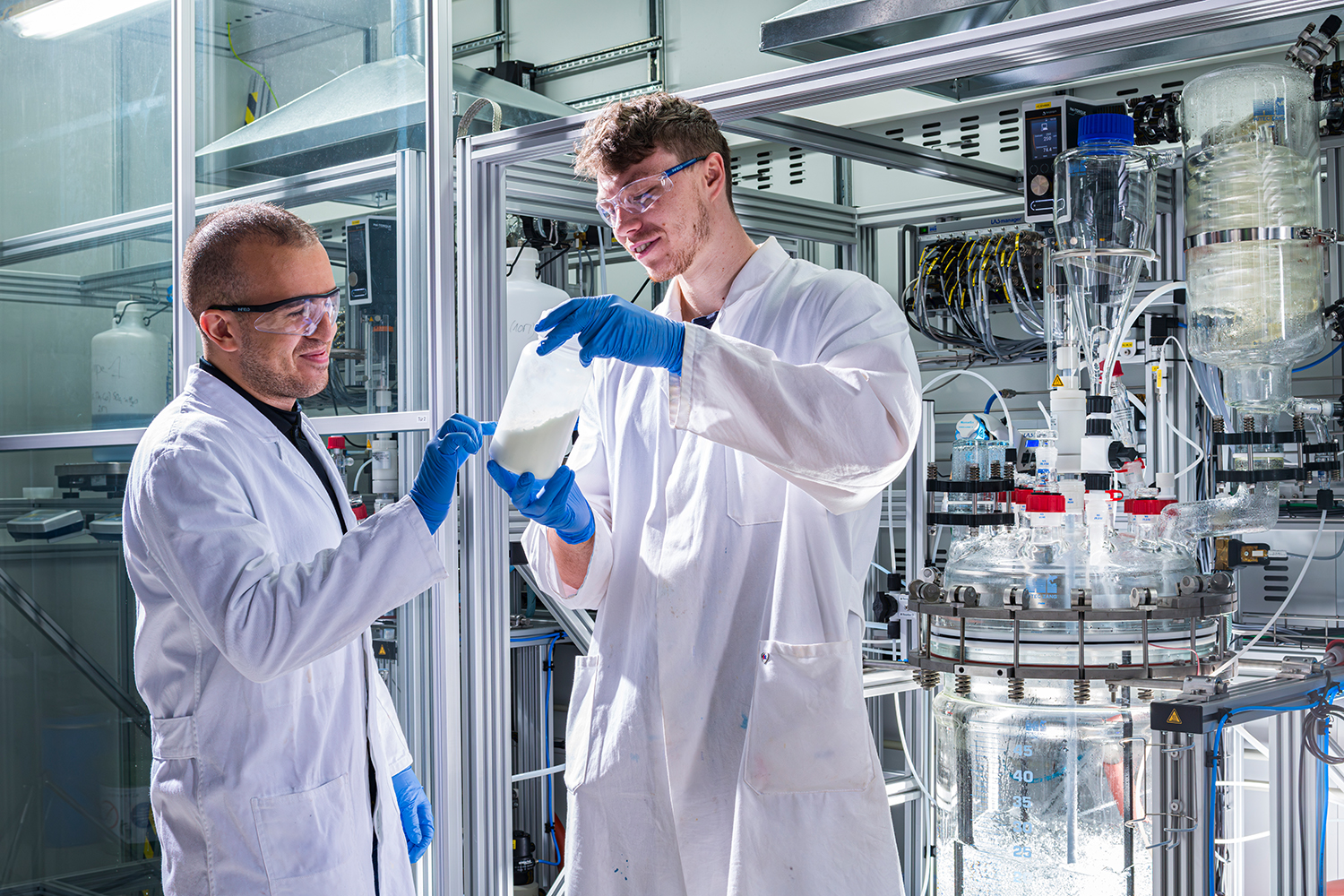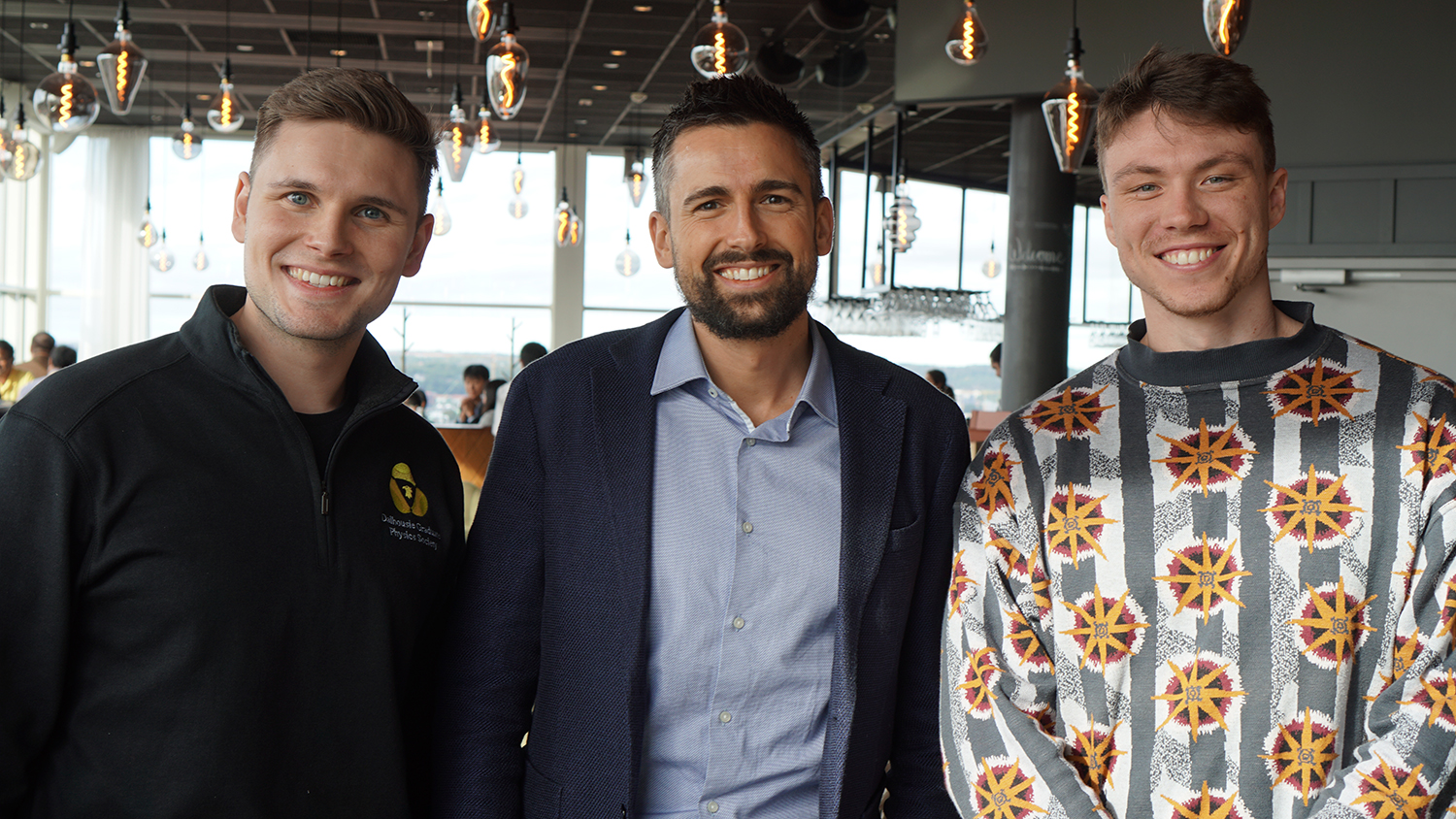Replace lithium in battery cells with sodium. That's the simple formula to solve the biggest sustainability and cost issues in electromobility. This approach not only has the potential to help Europe become less dependent on China in the battery cell market but also inject new momentum into European cutting-edge research. However, businesses and academia hesitate to seize this opportunity. Battery engineer Sebastian Büchele and chemist, as well as science influencer Tom Bötticher, aim to change this with their start-up, giving Europe a lead in sodium-ion technology. This commitment is reflected in the company name Litona, an English acronym derived from the formula symbols of the storage materials, representing 'from LI (Lithium) to NA (Natrium/Sodium)'. They prepared for their venture as founders through the ICM Early Ride Program.

Venture capital with morality: Litona invests in sustainable battery technology
Lithium is technically one of the best energy storage materials for batteries, but it faces ecological and economic limitations. Sodium-ion batteries could represent a sustainable solution for Europe, provided that the development and research on the technology are accelerated. In this regard, the start-up Litona aims to contribute with its sodium-based electrodes and storage powders.

The young GmbH is currently in the midst of the pre-seed phase and is in search of space for its first laboratory. Industrial production is set to commence soon in or around Ulm. Currently, they can only produce smaller quantities, which are manufactured at the Karlsruhe Institute of Technology. Sebastian is currently employed as a research associate at the Institute of Applied Materials – Energy Storage Systems (IAM-ESS) there. The founders plan to enter cell production later. In the short and medium term, however, they see their company as a chemical supplier of electrodes and energy storage powders for sodium-ion batteries. Their starting material, Prussian White, whose production Sebastian has optimized during his research, has a higher energy density than other materials for sodium batteries.
Driver for research and development
"The actual innovation we are creating is greater independence for the European market," explains Tom. The founding of Litona contributes to establishing supply chains for research institutes and development departments in Europe. These entities currently lack the necessary materials, hindering the widespread advancement of sodium-ion technology. This is precisely why Tom and Sebastian are entering the market now, not waiting until they could potentially achieve a major breakthrough with their own battery cell. "We're not reinventing the wheel; we're bringing it back to Europe," says Sebastian.

Sodium exhibits a significant weakness compared to lithium: its lower energy density. Theoretically, sodium-ion batteries would need to be significantly larger for the same capacity. However, this is only seemingly a major disadvantage. Not every future mobility offering needs to be optimized for maximum range. Smaller batteries are sufficient for sharing services in cities or compact secondary vehicles, as they cover short distances and are frequently charged. Additionally, there are several factors that can offset the energy density disadvantage, particularly in design. Sodium batteries are more heat-resistant and safer than lithium batteries, allowing for larger individual cells and saving material for packaging. They also perform better in cold temperatures. Improved temperature resistance of the cells leads to lighter and more compact temperature management systems. “With this, sodium-based batteries can achieve the same energy density as cost-effective lithium-ion batteries used in small cars and energy storage systems,” explains Tom. Looking beyond energy density, sodium as an energy storage material offers almost only advantages. It is widely available, even on Mars. It can be extracted more easily and environmentally friendly. It is cheaper. It is suitable for fast-charging systems.
Currently, China is the leading player in the field of sodium-ion technology. The majority of scientific publications come from there. According to the Fraunhofer Institute for Ceramic Technologies and Systems, 90 percent of patents and the first mass-produced electric cars are of Chinese origin. However, Sebastian and Tom see the latter more as showcases than market-ready products. They are convinced that the lead can be caught up if Europe acts more quickly. “That's why it's important for us to start and advance research and development here,” explains Sebastian.
Overseas semester at Tesla University sparks entrepreneurial ingenuity
The founders met during a semester abroad at Dalhousie University in Canada, where Prof. Jeff Dahn and Prof. Michael Metzger were expanding the research partnership with electric vehicle pioneer Tesla. “We gained a lot of energy from the labs there, which we now want to leverage to realize our own ideas,” says Tom. They learned from Jeff Dahn the importance of pursuing good ideas, as they often come with significant opportunities. Besides the valuable energy, they also bring scientific expertise from Canada and connections with highly qualified collaborators. Michael Metzger remains committed as their Scientific Advisor. They believe they can find co-founders or team members among his students, but not limited to that. “We aim to build a start-up with the best battery talents,” says Sebastian.
They identify Ulm as the optimal location in Germany to achieve this goal. The city in eastern Baden-Württemberg, alongside Münster, is one of the two significant hubs for battery cell technology and research in the country. Ulm provides greater proximity to the mobility industry, equipment manufacturers producing specialized machinery and systems for the battery cell industry, and suppliers heavily invested in laboratory and battery technology. Additionally, many potential investors in southern Germany align with Litona's goals. However, Litona emphasizes a crucial condition. “Litona is ethical venture capital,” says Tom. Those interested in promoting sustainable projects or advancing resource-efficient and emission-free energy supply in general are a good fit for Litona.
ICM Early Ride Program
The ICM Early Ride Program is an incubator program for innovation projects from the university environment in Baden-Württemberg with a strong focus on mobility and production. We help students, doctoral candidates and post-docs from research institutions to explore the potential of their research and awaken their entrepreneurial spirit.
- Information on the Early Ride Program
- Charging Time App - The solution to range anxiety
- BEHtec - Lightweight construction with natural fibers
- Litona - Sodium ion batteries
- MoThor Batteries - Replaceable battery cells
- ZeNo Battery Testing - Battery tests without battery
- Damper Dudes - Adaptive suspension strut for motorcycles
- Dyna Charge - Dynamic charging
Contact
Benjamin Büchner
Editorial and public relations, InnovationCampus Future Mobility
E-Mail: medien(at)icm-bw.de